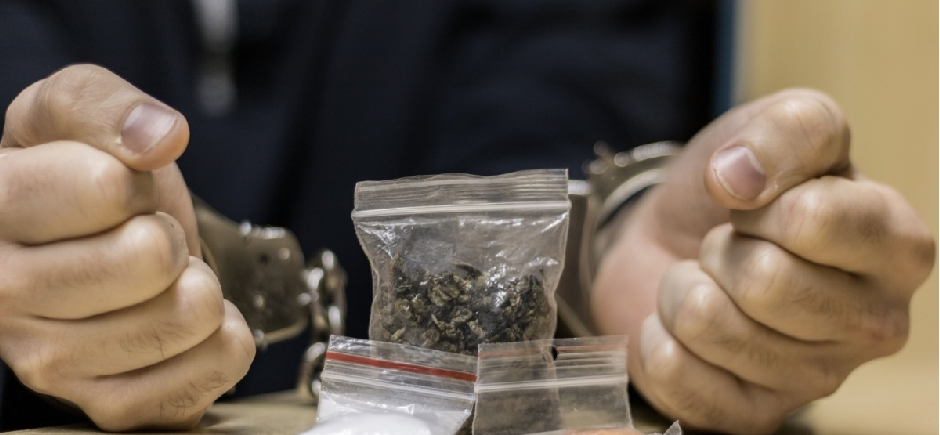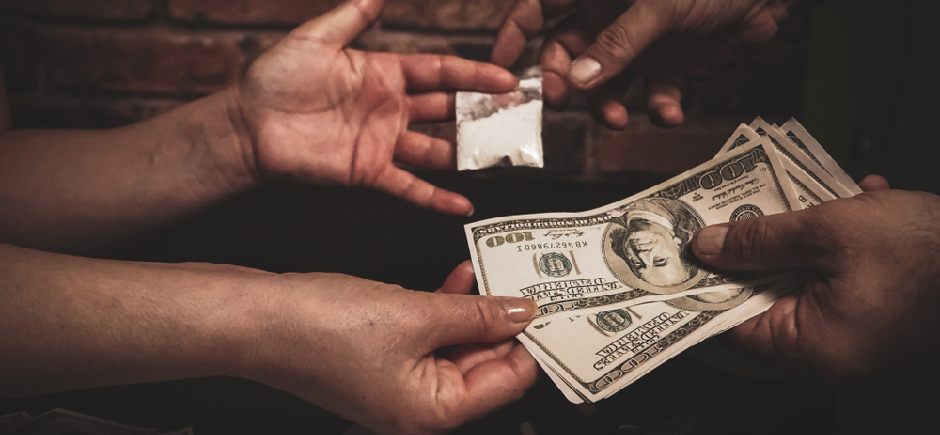Miami Drug Possession Attorney

Possession of a controlled substance is a lesser drug offense, but that doesn’t mean it should be taken lightly. Any drug criminal conviction can significantly affect your life, result in incarceration, and impact your long-term opportunities. If you were charged with drug possession, you need a Miami drug possession lawyer. Working with an attorney protects your rights and your future.
Drug crimes are harshly investigated and prosecuted, including seemingly minor drug possession charges. The criminal justice system can be stressful and overwhelming and is much easier to navigate with experienced legal support.
The Kirlew Law Firm: Diligent Miami Criminal Defense Attorneys
You should never assume that you can explain your way out of criminal charges. Securing the support of an attorney does not mean you are guilty. Rather, obtaining legal support instead of talking to law enforcement is essential, whether you committed the crime or not. It provides you with the greatest chance of having the charges against you dropped or mitigating the worst of the penalties.
Without an attorney, you are much more likely to be charged with a crime you didn’t commit or face charges that are harsher than you deserve. However, in order to reap the most important benefits of legal support, you need to work with an experienced and dedicated criminal defense attorney.
At The Kirlew Law Firm, we bring you aggressive legal support in the face of drug possession charges. With years of experience as a criminal defense attorney and a public defender, Brian Kirlew has extensive knowledge and understanding of drug offenses. He uses this experience to efficiently review your case and present your options for defense.
The team at The Kirlew Law Firm works to limit or prevent the significant penalties and long-term effects of drug possession charges. We know the damage these charges can do to individuals, families, businesses, and reputations. Our firm helps you through each step of a criminal case.
What Is Drug Possession in Miami?
Drug possession is the criminal offense of actual or constructive possession of any amount of a controlled substance if you do not have a valid prescription, authorization from a provider, or another authorized reason. In Florida, most of these charges are felonies. Charges range from third-degree to first-degree felonies, but they can also be first-degree misdemeanors for small amounts of cannabis possession.
Drug possession can be charged under both state and federal law. However, it’s less common for federal agencies to charge for minor possession unless there are unique circumstances. Possession is typically handled at the state level.
When there is enough of a controlled substance present in an offense, it may be charged as a trafficking offense or possession with intent to sell. These charges are more serious and have more significant consequences on your life. In some cases, an attorney can work to reduce these charges to simple drug possession if they believe this is appropriate for your case.

What Must Be Proven to Convict You of Drug Possession?
Several elements must be proven beyond a reasonable doubt to be true in order for you to be convicted of a drug possession charge. These are:
- Controlled Substance: The substance involved in the offense was, in fact, the controlled substance it was suspected to be and is illegal to possess under state law.
- Knowledge and Intent: It must be proven that you knew or should have known the substance was illegal and that you knew or should have known you possessed the substance.
- Control: It must be proven that you had actual or constructive possession and control over the substance.
There are two types of possession: actual and constructive possession. Actual possession occurs when the substance is physically on your person or carried on your person. Constructive possession means that the substance is considered to be under your control due to close proximity and presence in a home, vehicle, locker, bag, or other nearby location you have control over.
A skilled attorney is capable of looking at each of these elements and determining if there are weak areas in the prosecution’s case. This may include proving that you were unaware of the controlled substance near you or that you did not have control over the substance.
What Affects the Penalties for Drug Possession Charges?
There are several factors that can increase or mitigate the penalties associated with drug possession charges. These include:
- Controlled Substance Type: There are different schedules of controlled substances, depending on the level of danger, likelihood of abuse and dependence, and accepted medical usage. The more dangerous a controlled substance is considered to be, the higher the penalties. Even if small amounts of high-schedule substances are involved, significant charges could result.
- Controlled Substance Amount: The amount of the controlled substance affects the charge and penalties, as greater amounts will result in more significant penalties and may allow for less leniency by a judge. If there is enough of a controlled substance present, it may not be considered just a possession charge. A trafficking or sale charge can have much more serious penalties.
- Prior Offenses: If you have a prior criminal record, penalties are more likely to be more serious. Judges are less likely to be lenient with repeat offenders. You may also be ineligible for probation and other alternate sentencing. If your prior convictions are felonies, this further increases the penalties through Florida’s habitual felony offender statute.
- Aggravating Factors: Other aggravating factors can also increase the penalties for drug possession charges. These may include other types of criminal activity, the possession or use of a weapon, or whether your actions seriously harmed or killed anyone.
Aggravating factors for drug possession charges also include the location of the possession and arrest. For example, penalties increase for possession near a school, park, community center, childcare facility, college, church, or recreational facility.
The more serious the aggravating factors or possession charge is, the more likely that there will be a mandatory minimum sentence involved in the case. Your attorney can give you a straightforward understanding of the charges you are likely to face and what you can do to mitigate the penalties.
What Are the Penalties for Drug Possession in Florida?
Drug possession can result in fines, jail time, prison time, probation, community service, and other consequences. It can even result in deportation for non-citizens.
The main charge for drug possession is a third-degree felony, which applies to all drug possession cases unless another statute applies. The penalties for a third-degree felony in Florida are up to five years imprisonment and up to $5,000 in fines. Other charges for drug possession include:
- Possession of a Schedule V substance is a second-degree misdemeanor. You could be sentenced to 60 days of imprisonment and fines of $500 or less in fines.
- Possession of 20 grams or less of cannabis, not including resin extract, is a first-degree misdemeanor. This results in penalties of up to one year of imprisonment and up to $1,000 in fines. If the amount possessed is more than 20 grams, it is changed as a third-degree felony.
- Possession of more than 10 grams of Schedule I and II substances, a mixture with these substances, or a combination of them, is a first-degree felony. This includes substances such as heroin, nicocodine, methadone, myrophine, fentanyl, fentanyl derivatives, morpheridine, and isomethadone. Conviction of a first-degree felony results in up to 30 years in prison and up to $10,000 in fines.
Conviction of both felonies and misdemeanors results in a criminal record.
Potential Defenses for Drug Possession Charges in Miami
The ideal defense for a drug possession charge will be entirely dependent on your specific case, including how your arrest was conducted, how the drugs were discovered, and the actions of the law enforcement officers on your case.
Having an attorney by your side is crucial to quickly determine what the right defense is to protect your rights. Your attorney can also review the evidence against you and determine if motions can be made to suppress evidence that was mishandled or gathered illegally. The prosecution must prove you guilty beyond a reasonable doubt. If significant evidence is inadmissible, the prosecution may decide to drop the case.
Potentially defenses an attorney may use to suppress evidence or argue against the prosecution’s evidence include:
- Unlawful Search and Seizure: Law enforcement needs probable cause or a warrant to perform a traffic stop or a search of someone’s property. If you did not give consent to a search and seizure and there was no warrant or probable cause, the evidence an officer uncovered during this search is inadmissible and can be suppressed.
- Entrapment: This occurs when law enforcement officers convince you to do something illegal you would not have otherwise done. Evidence obtained as a result is inadmissible.
- Lack of Knowledge or Control: If you were unaware that the drugs were in your possession or the substances were in a location that you had no direct control over, the prosecution may be unable to prove actual or constructive possession.
- Valid Prescription: Having a valid prescription from a working medical professional provided in the course of their duties is a good defense against possession charges.
- Mistaken Identity: In cases where a suspect of a crime is identified at a later time by a witness, mistaken identity can be common. If you are being accused of a crime you did not commit, your attorney can work to prove this.
FAQs
You may be able to beat a drug possession charge in Florida with a strong defense and the help of a skilled criminal defense attorney. Some common defenses against drug possession may include:
- You did not have possession because the drugs were on your person or in your home or vehicle without your knowledge.
- You had a valid prescription.
- Evidence was discovered through an illegal search and seizure.
An attorney is crucial to determine which applies and is most helpful for your case.
How long you go to jail for drug possession in Florida depends on the type and amount of controlled substance. For example:
- Standard possession penalties result in up to five years of imprisonment.
- Possession of Schedule V substances results in up to 60 days of imprisonment.
- Possession of 20 or fewer grams of marijuana includes penalties such as not more than one year of imprisonment.
- Possession of more than 10 grams of certain Schedule I and II substances results in up to 30 years of imprisonment.
The penalty in Florida for possession of a controlled substance is typically a third-degree felony. This results in up to five years in prison and up to $5,000 in fines. However, these penalties can vary significantly depending on the type of substance and amount involved in the offense. Possession of cannabis is charged as a first-degree misdemeanor, resulting in lighter penalties. Possession of a certain amount of a high-schedule substance can result in up to a first-degree felony charge.
A third-degree felony drug possession charge in Florida is the actual or constructive possession of a substance without a valid prescription, lawful obtainment from a provider, or other authorization. The prescription or order from a medical professional must have been provided as part of their practice.
This offense can result in habitual felony offender increased charges if an individual has prior felony convictions. Drug possession may result in different penalties for different types or amounts of substances.



